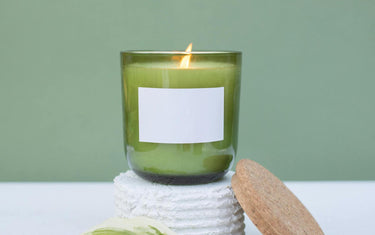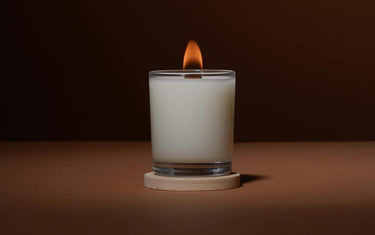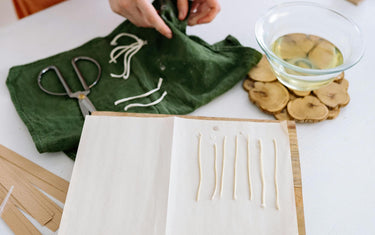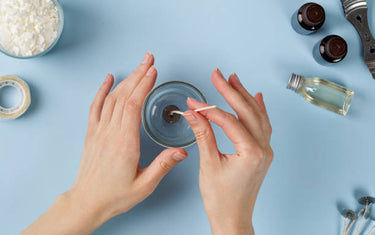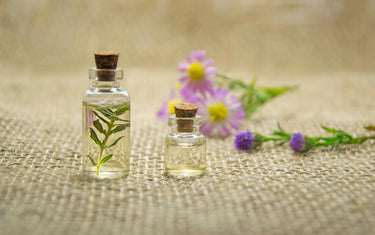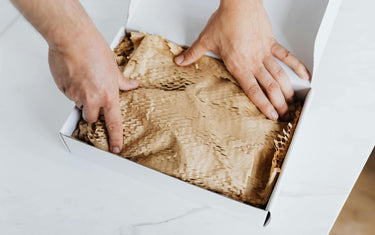5 min read / 20 March 2024 / yasmin sharp
Are Essential Oils Safe to Use Around Children?
Explore the safety of using essential oils around children, covering everything from dilution guidelines to the benefits and risks involved.
Share this post
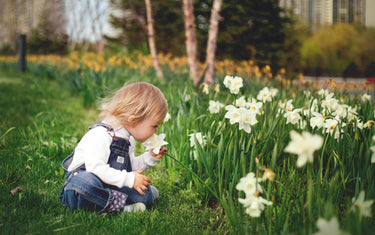
Are essential oils safe for children and babies?
Can essential oils be beneficial for kids?
How do I safely use essential oils around my kids?
How should I dilute essential oils for children and babies?
Which essential oils should I not use around children?
Where should I safely store my essential oils?
Should I speak with a doctor before using essential oils for children or babies?
Are essential oils safe for children? As a parent, it’s a question you may have found yourself asking, especially when it comes to babies and kids of a young age.
Whilst they contain a wealth of natural properties that could be beneficial for your children, essential oils are highly concentrated and extra care needs to be taken to ensure you minimise the risk of any adverse reactions.
To put your mind at rest, here’s our guide for safe essential oils to use around your kids.
Are essential oils safe for children and babies?It is generally considered safe to use essential oils for children and babies that are at least 6 months old. This is because babies’ skin and respiratory systems are still in the early stages of development which may reject the oil and create adverse effects from essential oils. When using essential oils on kids, extra care needs to be given as their skin can often be more sensitive than adults, which can lead to irritation and formation of rashes and inflammation. There are also specific dilution guidelines that need to be followed if you are thinking of using essential oils topically on your kids which are different to those suggested for adults. We explain more about the recommended dilution ratios below. This rule also applies to the topical application of essential oils onto your own skin. Ideally, you should wait for around 15-20 minutes until the oil is fully absorbed into your skin before touching your baby. |

Can essential oils be beneficial for kids?
For babies and children that are aged 2 and over, essential oils can provide a host of benefits for their general wellbeing.
For example, using a diffuser to disperse certain oils can make it easier for them to relax and enjoy a better night’s rest – which can also allow parents to catch up on much needed sleep too.
Some essential oils contain antibacterial properties that can be used to clean up unwanted bacteria to keep your home clean and safe for your children.
There are also oils that can work as a decongestant, which when inhaled can open blocked airways when a child is suffering from a seasonal allergy or illness.
How do I safely use essential oils around my kids?
There are a couple of ways that you can use essential oils, so they are safe for children:
Diffusing essential oils
A common way many parents use essential oils around their kids is through a diffuser.
Lavender oil is a popular choice, as it can work as a mild sedative that creates a calm and relaxing atmosphere that encourages better sleep.
The diffuser should be positioned somewhere out of reach so the child can’t knock it over or take it apart, as you want to ensure they do not accidentally come into contact with the pure oil, which is highly concentrated.
Do not diffuse any essential oil around children aged six months or younger in a small, confined space, as their lungs are still developing and it may not be beneficial for their airways.
Topical application of essential oils
As we mentioned earlier, some essential oils contain decongestant properties that can be beneficial for children who have a seasonal cold or allergy.
However, before applying any topical mixture to your child’s skin, you should first complete a patch test to ensure it is compatible.
You can do this by diluting the essential oil with a carrier oil and applying a small amount to the inside of their elbow.
Cover with a plaster for 24 hours and if you do not see any redness, inflammation, or other signs of irritation, it should be safe to use.
To apply essential oils topically, simply dilute with a carrier oil and rub the mixture into a child’s chest so they can naturally inhale as they breathe.

How should I dilute essential oils for children and babies?
When it comes to diluting essential oils for children and babies, extra care needs to be taken or topical application.
By following the recommended dilution ratios below, this should significantly reduce the risk of irritation, whilst allowing the natural properties of the oil to provide its potential health benefits.
- 3 months to 24 months: 0.25% to 0.5%
- 2-6 years: 1% to 2%
- 6-15 years: 1.5% to 3%
- Over 15 years: 2.5% to 5%
Of course, these are the recommended ratios for children, but you can always dilute the essential oils even further, if you want more peace of mind.
Which essential oils should I not use around children?
Some people believe that peppermint and eucalyptus essential oils should not be used around children younger than 3 years old due to their potency.
As the parent, it is up to you to determine which oils are suitable for your child and introducing them slowly can help to keep them safe.
Read as much information as you can about the oils to ensure their suitability and speak with your doctor if you are unsure about any potential negative side effects they may cause.
Always perform a patch test before using an essential oil for the first time and ensure you always follow the dilution guidelines as closely as possible.

Where should I safely store my essential oils?
Storing your essential oils should be pretty straight forward. Simply keep them out of reach of your children and better still, out of sight.
Essential oils should never be consumed by children (or adults, for that matter) so keep them in a cool, dry space where your curious children won’t be able to find them.
Should I speak with a doctor before using essential oils for children or babies?
It is always a good idea to speak with your doctor before starting any new treatment – natural or otherwise.
There are some essential oils that should not be mixed with certain types of medical conditions and medications, so if you are concerned about potential adverse effects, it is advisable to speak with your doctor.

Final thoughts
So, are essential oils safe for children? As long as the correct dilatation ratios are followed and you do not use essential oils on babies aged 3 months or younger, then they should be perfectly safe to use.
Always complete a patch test before using essential oils on your kids and if you have any concerns, speak with your doctor to get their insight and advice about the best course of action.
The essential oils that are most likely to cause adverse skin reactions include oregano oil, cinnamon bark oil, jasmine oil, lemongrass oil, ylang-ylang oil, chamomile oil, and bergamot oil.
